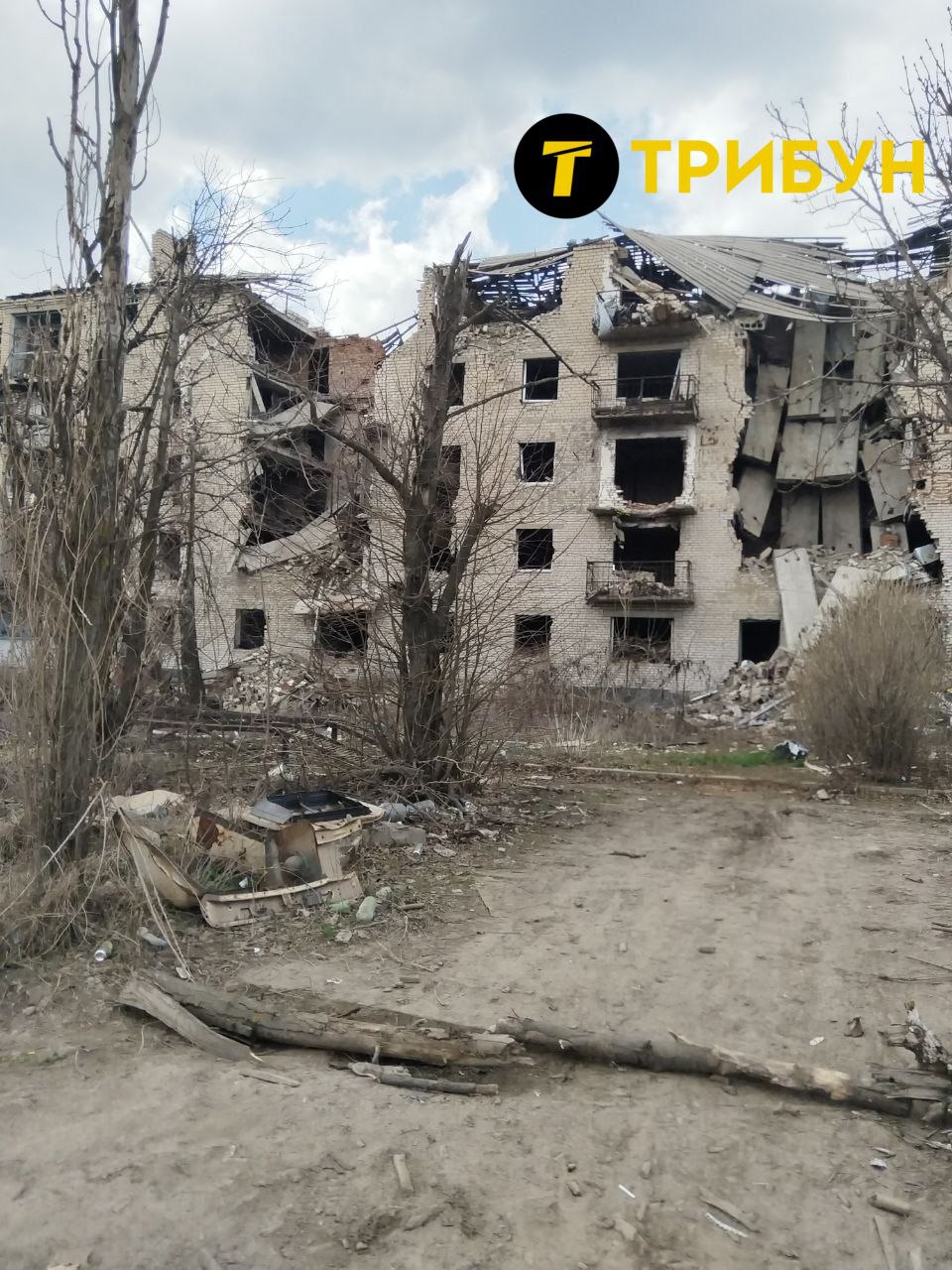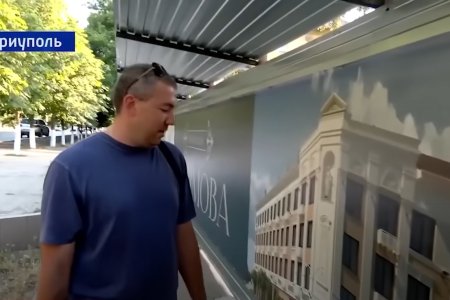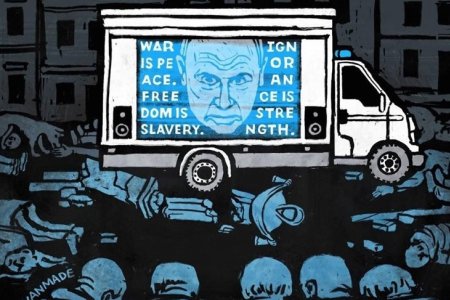
Russian minister of construction Irek Faizullin has confirmed that Russia has no intention of rebuilding Popasna, the city in Luhansk oblast that it totally destroyed through relentless bombing and shelling. The official further admitted, with winter approaching, that nothing is being done in the direction of the almost equally devastated city of Sievierdonetsk, and that a number of other occupied cities may also be left in ruins.
The lack of reconstruction had long been clear, and the Russian-installed leader of its proxy ‘Luhansk people’s republic’ Leonid Pasechkin stated back in August 2022 that “there’s no particular point” in rebuilding Popasna. Such an admission from a Russian government member is, nonetheless, shocking, as is the fact that Russia’s destruction of Ukrainian cities (and refusal to rebuild them) is referred to as “liberation”.
Current Time has spoken with Denis Kazansky, a Ukrainian journalist, originally from Donetsk, who has made a point, since 2014, of following Russian and pro-Russian bloggers, propagandists and politicians. Ukrainian journalists do not, in any case, have access to occupied territory, and such supporters of Russia’s aggression, who can scarcely be accused of pro-Ukrainian bias, often obligingly expose (even boast of) war crimes and the real situation that the Russian invaders seek to conceal.
Some of these individuals have visited areas which Russia is alone in calling its ‘new territory’. It is their reports that demonstrate that in the majority of such areas Russia is making little or no attempt to rebuild what it destroyed.
Some have been reported here already, such as Sergei Aliev, a ‘Russian Orthodox’ blogger who had recently been in Sievierodonetsk (Luhansk oblast). He told Russian journalists that he had been approached by elderly ladies who demanded to know what exactly the Russians had ‘liberated them’ from. “From food? From water? From electricity? So tell us, what did you liberate us from? And I was ashamed.”
Kazansky describes the full video that Aliev posted of how his organization handed out some slightly rotting potatoes from their van. Very many of those who remained in areas that Russia first bombed, and then seized control of, are elderly pensioners. On the video, you see them surging towards this van and grabbing the potatoes. It’s like some post-Apocalypse film, Kazansky says, and describes the distressing image of these elderly people forced to pick up any rooting potato that has fallen to the ground since it is, at least, food. There is no work in these cities, people have no income and are forced to depend on ‘humanitarian aid’, on handouts.
This is the brutal reality which is in stark contrast to all the Russian state propaganda about how Russia was “helping Donbas” and “liberating” it.
This is acknowledged also by another “ideologue of Russia’s war against Ukraine”, Russian blogger Maxim Kalashnikov who also visited cities in Luhansk oblast which Russia destroyed after its full-scale invasion (Sievierodonetsk, Lysychansk; Rubizhne; Popasna and others). While in some, like Popasna, there are almost no remaining residents, there are considerably more people in Sievierodonetsk and Lysychansk, for whom a second winter of horrific conditions is approaching, despite the fact that these cities have been totally under Russian control since the summer of 2022.
Kazansky earlier posted extracts from Kalashnikov’s latest video in which this undoubted enemy of Ukraine admits that the conditions, the roads, and life in general in areas that were, until recently, under Ukrainian government control were on a much higher level than in the Russian proxy ‘Luhansk people’s republic’. The Russian invaders were “stunned”, he says, by the difference they found between the poverty, squalor and decay in the so-called ‘republic’ (under Russian occupation since 2014) and those areas that, prior to the full-scale invasion were under government control. The difference, moreover, is not just with ‘LPR’ since very many of the Russian citizens sent to kill Ukrainians will have come from parts of the Russian Federation where conditions are significantly worse.
Kalashnikov acknowledges that “it’s hard to explain that this is liberation when people have had their customary life taken away, their pay, their work”. How do you think the residents of some of these places, he asks, should view “such liberators?” In fact, he acknowledges that, even among those who once had pro-Russian views, there is mounting hatred towards them, and says that this will only increase. Those he still calls ‘a fifth column’ are angry and can’t understand why Russia has devastated their homes, their lives.
The situation in Mariupol is slightly different. After mercilessly bombing and shelling of the besieged city, Russia destroyed around 90% of the city’s infrastructure. It has been under Russian occupation since May 2022, and Russia has tried to use it for propaganda about how it is, supposedly, rebuilding the city. Asked about this, Kazansky acknowledges that some work is taking place, but not enough, and it is unclear who is receiving those apartments located in rapidly built blocks.
As already reported here, there is, also, another aspect, one that Kazansky rightly calls “thoroughly despicable”. In the centre of Mariupol, the invaders demolished the existing, but damaged buildings and constructed apartment blocks. These, however, are not for those whose bombed homes stood in that place, but ‘for sale’, mainly to Russians, since local residents have lost everything, and are hardly in a position to ‘buy’ what Russia took from them. It is small wonder that residents of all cities seized after Russian attacks plead with the occupation regime to restore, and not demolish, their buildings. In a desperate, and very angry, ‘appeal to [Russian president Vladimir] Putin’, Mariupol residents spoke of how they had been made fully homeless. Their address cites the famous Clock House in the centre which suffered two Russian missile attacks and several fires. The occupiers had promised to restore the building, but instead demolished it, with residents effectively deprived of their property altogether.
All other cities, Kazansky says, have been simply left without anything by the invaders, with no reconstruction work undertaken.



